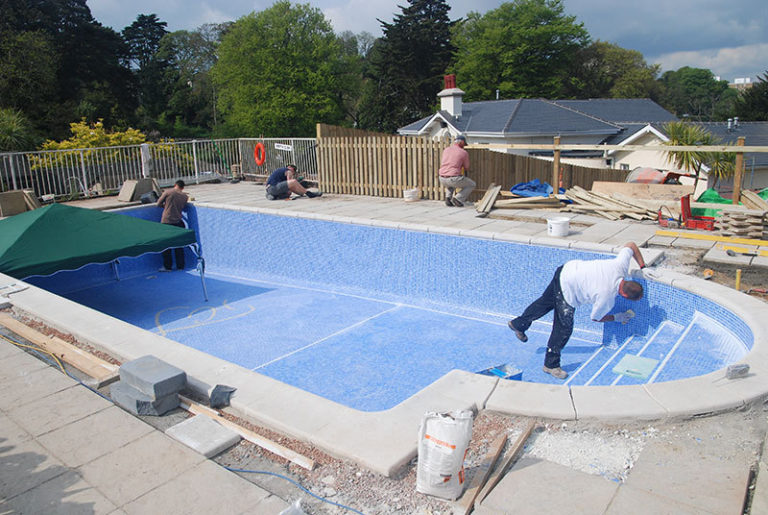Do You Need a Permit to Resurface a Pool in Florida?

In Florida, pool ownership comes with the joys of outdoor living, but also the responsibility of upkeep. Over time, the surface of a swimming pool can wear down, leading homeowners to consider resurfacing. However, one common question often arises: Do you need a permit to resurface a pool in Florida?
The short answer is: Yes, in most cases, a permit is required. Pool resurfacing isn’t just a cosmetic update—it involves structural work that falls under building code regulations. Let’s dive deeper into what this means and what Florida homeowners need to know.
Why Pool Resurfacing Requires a Permit
Pool resurfacing involves more than just a fresh layer of material. Whether you’re applying plaster, quartz, pebble, or other finishes, the process may include draining the pool, grinding or chipping away old materials, repairing cracks, and applying new surface coatings. Since this work can affect the pool’s integrity and safety, local building departments typically regulate it.
If you’re located in Saint Petersburg or surrounding areas, it’s important to check with your local city building department. Different municipalities may have slightly different rules, but most follow the Florida Building Code as the baseline.
What Kind of Permit Is Needed?
The exact type of permit you need depends on the scope of the work. For simple resurfacing with no structural changes, a building or alteration permit is typically required. If the job includes structural repairs, plumbing updates, or electrical work (like new lighting), you may need additional permits.
Many counties also require that the work is done by a licensed contractor. This ensures the contractor is aware of code requirements and knows how to handle inspections that come with the permit process.
For those exploring options, here’s a helpful link to Swimming Pool Resurfacing Services in Saint Petersburg, FL that provides more details on licensed professionals in your area.
What Happens If You Don’t Get a Permit?
Skipping the permit might save time or money in the short run, but it can lead to serious issues down the line. Here’s what you risk:
- Fines and Penalties: Cities often issue fines to homeowners or contractors who perform work without a permit.
- Work Stoppage: Inspectors can halt the job, delaying completion until the proper paperwork is filed.
- Resale Problems: If you try to sell your home later, unpermitted work can become a legal headache.
- Insurance Claims Denied: If damage occurs related to the resurfacing work, your insurance provider may deny the claim if it wasn’t permitted.
How to Apply for a Permit in Florida
To get a permit, your contractor usually handles the process. However, it’s a good idea to know what’s involved:
- Application Submission: Contractor submits drawings, specs, and scope of work.
- Plan Review: Local authorities review to ensure code compliance.
- Permit Issued: Once approved, work can legally begin.
- Inspections: Depending on the work, inspections may occur during or after the job.
If you’re a homeowner managing the process yourself (which is less common), visit your city’s website or building department for forms and guidance.
How Long Does It Take to Get a Permit?
Timeframes vary by city and workload, but you can generally expect:
- Simple resurfacing permit: 3 to 10 business days
- Larger or structural projects: 1 to 3 weeks
Hiring a licensed contractor familiar with local regulations can help speed up the process and reduce stress.
Permit Costs in Florida
Permit fees for pool resurfacing can range from $100 to $500 depending on your location and the scope of work. Some areas charge based on job valuation, while others have fixed rates.
Again, always consult your local authority or contractor to get accurate estimates.
A Note on Hiring the Right Contractor
Choosing the right contractor is key to avoiding permit issues, safety problems, or substandard work. Always check for:
- Proper licensing
- Insurance coverage
- Experience with similar projects
- Good reviews and references
One company that many homeowners in the area trust is Affordable Pool and Spa Services. Known for their professional work and deep understanding of local regulations, they’ve become a go-to option for anyone looking to resurface their pool in Saint Petersburg and nearby cities. Many residents appreciate their detailed process and ability to handle permits smoothly, taking the guesswork out of the project.
Can You Resurface a Pool Without Draining It?
No, resurfacing a pool requires draining. The old surface must be exposed for prep and repair. Trying to resurface with water in the pool is not possible, and any contractor offering this is not following industry standards.
That’s another reason why permitting is essential. It ensures the process is done correctly and meets local safety and structural standards.
When Is the Best Time to Resurface a Pool in Florida?
Florida’s climate makes it possible to resurface pools almost year-round, but fall and spring are often ideal. These seasons offer mild temperatures and less rain, which helps the resurfacing materials cure properly.
Plan ahead if you’re aiming for spring, as this is a popular time for pool projects.
Additional Resources
If you’re looking for more detailed guidance or want to explore your options further, take a look at Swimming Pool Resurfacing Services in Saint Petersburg, FL. This resource includes licensed experts who can guide you through the entire resurfacing and permit process.
Conclusion
So, do you need a permit to resurface a pool in Florida? Yes—most of the time, you do. Permits protect both the homeowner and the integrity of the pool, ensuring that work meets safety standards and avoids costly mistakes.
Whether you’re planning a basic surface refresh or a full renovation, always work with a professional who understands Florida’s permitting rules. Taking the right steps upfront can save you time, money, and future headaches.




